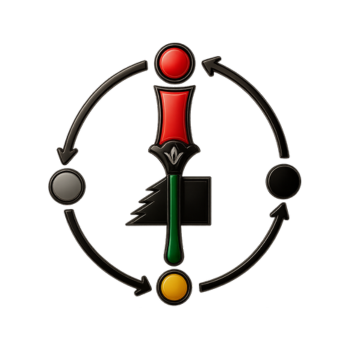-
“The construction of the pyramids, the invention of the 365-day calendar, the development of normative values and ethical codes in wisdom literature and instructional books, the clear progress made toward abstract thinking aimed at the understanding of the Whole—such are the extraordinary feats to be credited to the first dynasties of pharaonic Egypt. Right from the beginning, with a remarkable immediacy, this civilization achieved fundamental breakthroughs, generated monumental inventions, produced intellectual works of great moral value, explored questions of key philosophical importance. By what ‘miraculous’ means were the ancient Egyptians able, right from the beginnings of their national history, to produce such marvels, of such greatness, and in such abundance? The question will remain perennially open.”
“As we indicated earlier, documents from the oral traditions of black Africa related to the origins of the world fit precisely into the same world-view as that of speculative pharaonic philosophy. The following example, dazzling in its relevance, comes from the tradition of Dogon speculative thought aimed at explaining the order in which all things and all beings were formed.”
“In this account, Amma (the deity was known in the Nile Valley as Amon, Amon-Ra, and in Rwanda as Imana—the name retains the identical consonantal structure m-n) created the spirit Nommo, Master of Water. After that he created the Yeban spirits, owners of the earth, which stayed moist for a long time. After them, Amma created animals, plants, and humans.”
“A reader could take the text for an Egyptian inscription. Indeed, it shows striking parallels with a specific pharaonic text, the Shabaka stele:”
Theophile Obenga
“African Philosophy: The Pharaonic Period: 2780-330BC”
Page 83

